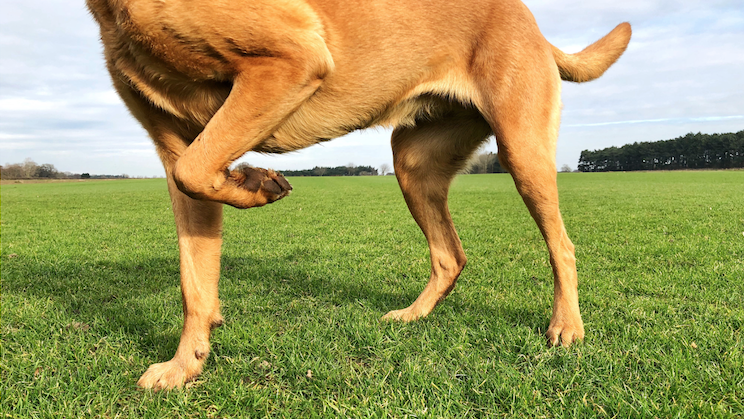Common Causes of Limping in Dogs
As a dog owner, seeing your canine companion limp can be both alarming and heart-wrenching. In dogs, limping, or lameness can arise from various causes, ranging from minor injuries to chronic health conditions. Understanding these causes is crucial for effective management and ensuring the well-being of your beloved pet.
Understanding Limping in Dogs
Limping, or lameness, refers to an abnormal gait or stance resulting from the dysfunction of one or more limbs. It's a common issue in dogs and can be caused by many factors. In some cases, the cause of limping may be obvious, such as a cut or scrape on the paw. However, the cause may be more difficult to identify in other cases. The severity of limping can vary depending on the underlying cause. A dog with a minor injury may only limp when he puts weight on the affected limb. A dog with a more serious condition, such as arthritis or bone cancer, may limp constantly.
Identifying the Cause of Limping
To effectively address limping in your dog, identifying the underlying cause is essential. The most common causes include:
Injuries: The most immediate cause of limping is an injury. Dogs can injure themselves through everyday activities like playing, jumping, or running. Common injuries include sprains, strains, and fractures, which can cause noticeable pain and limping.
Joint Problems: Many dogs, especially larger breeds and older pets, are prone to joint problems like arthritis or hip dysplasia. These conditions can cause chronic pain and stiffness, often noticeable after the dog rests.
Paw and Pad Issues: Dogs’ paws are susceptible to cuts, abrasions, and foreign objects like thorns or glass. Extreme weather conditions can damage their pads, leading to discomfort and limping.
Infections and Diseases: Certain infections, like Lyme disease, can cause limping. Additionally, paw or nail bed infections can be painful and lead to lameness.
Congenital Disorders: Some dogs are born with congenital issues that can affect their gait. These conditions often become apparent as the dog grows.
Overexertion: Dogs can overexert themselves, leading to muscle soreness and temporary limping.
Assessing the Severity of Limping
When you notice your dog limping, assess the severity:
- Check for visible injuries or abnormalities in their legs or paws.
- Observe their behavior – are they showing signs of pain like whimpering or licking a particular area?
- Notice if the limping is constant or intermittent.
Immediate Steps to Take
If your dog starts limping:
- Limit their movement to prevent further injury.
- Check their legs and paws for any visible signs of injury.
- If the limping persists for more than a day or is severe, contact your veterinarian immediately.
Treatment Options
Treating a dog's limping will vary depending on the diagnosed cause. Medications may be prescribed to manage pain and reduce inflammation. In cases of severe injuries, such as fractures or significant joint problems, surgery might be the recommended course of action. Post-surgery, or for certain chronic conditions, physical therapy and rehabilitation exercises become integral parts of the recovery process, helping to restore strength and mobility. Additionally, weight management plays a crucial role, particularly for dogs with joint issues, as maintaining a healthy weight can significantly reduce the stress on their joints and alleviate discomfort.
Home Care and Management
While veterinary care is paramount, there are things you can do at home to help:
- Provide a comfortable, quiet resting space.
- Control your dog’s activity level, avoiding stairs and jumping.
- Use ramps or steps to help them access furniture or cars if necessary.
- Keep their living area free of hazards that might cause further injury.
Preventing Limping in Dogs
Prevention is a key aspect of canine health. Regular exercise, tailored to your dog's age, breed, and health condition, is essential for strengthening muscles and maintaining joint health. A balanced diet plays a crucial role in maintaining a healthy weight, thus reducing undue stress on the joints. Routine health checks allow for early detection of potential issues that could lead to limping. Additionally, being mindful of your dog's activities, particularly in unfamiliar environments, can help prevent injuries that may result in limping.
Long-Term Care for Dogs with Chronic Issues
For dogs suffering from chronic conditions such as arthritis, ongoing care and management are critical.
- Regular veterinary check-ups are essential for monitoring the condition and adjusting treatment.
- Adapting their home environment to make it more comfortable and accessible can greatly enhance their quality of life. This adaptation might include installing ramps, providing orthopedic bedding, and ensuring easy access to all essential areas.
- As your veterinarian recommends, ongoing medication or dietary supplements can help manage symptoms and improve joint health over the long term.
Prompt and Compassionate Emergency Care for Your Pet at Affordable Animal Emergency Clinic
At Affordable Animal Emergency Clinic, we recognize the urgency and concern of seeing your dog limp. Our emergency team is committed to providing immediate, compassionate care for your canine companion in their time of need. If your dog begins to limp or shows any signs of distress, don’t wait. Contact us immediately.
Affordable Animal Emergency Clinic.
By accepting you will be accessing a service provided by a third-party external to https://emergencyvetpugetsound.com/
LATEST NEWS

Affordable Animal
Emergency Clinic
Affordable Animal Emergency Clinic is proud to provide affordable emergency veterinary care to cats, dogs, exotic animals and avians in Auburn and the surrounding areas.



